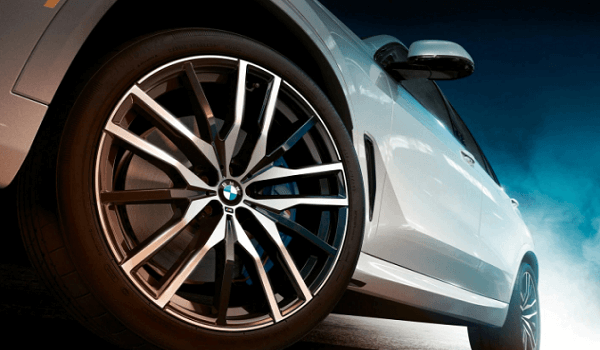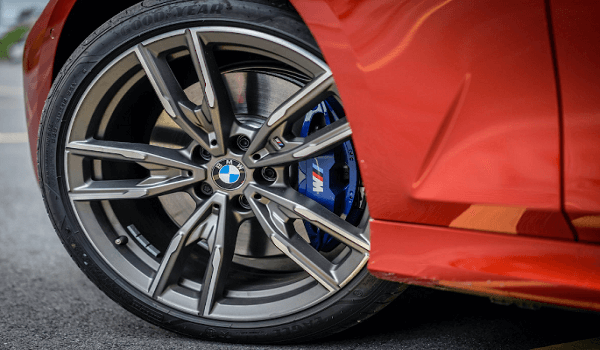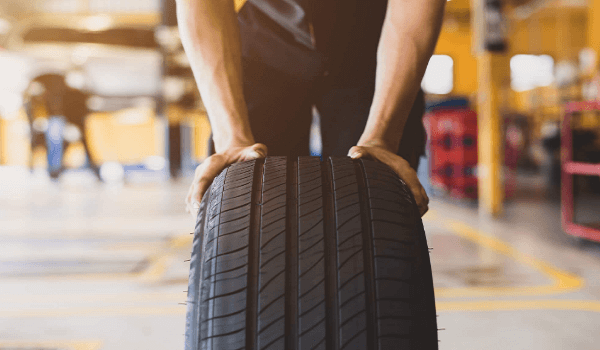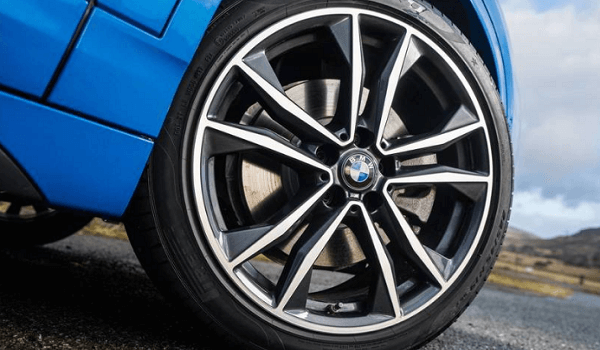How Long Do BMW Run Flat Tires Last – BMW is a renowned German automaker known for producing high-performance luxury vehicles.
One of the unique features of BMW cars is their use of run-flat tires. Run-flat tires are designed to allow a vehicle to continue driving safely even after a puncture or flat tire, eliminating the need for a spare tire.
Many BMW owners wonder how long these run-flat tires last and when they should be replaced. In this article, we will discuss everything you need to know about BMW run-flat tires, including their lifespan, maintenance, and replacement.
What Are BMW Run-Flat Tires?

BMW run-flat tires are designed to be driven even after they are punctured or deflated. They are designed with reinforced sidewalls that support the weight of the car, even when the tire has lost air pressure.
This technology eliminates the need for a spare tire and provides a level of safety and convenience for drivers.
BMW run-flat tires come standard on many of their vehicles, including the 1, 2, 3, 4, 5, 6, and 7 series.
How Long Do BMW Run-Flat Tires Last?

The lifespan of BMW run-flat tires depends on various factors, including driving style, road conditions, and maintenance.
On average, BMW run-flat tires can last up to 50,000 miles.
However, this can vary depending on the model of the vehicle and the specific tire.
It’s important to note that run-flat tires should not be repaired if they are punctured, as they can only be used for a limited distance and should be replaced as soon as possible.
Additionally, BMW recommends that run-flat tires should be replaced every six years, regardless of the mileage.
This is because the rubber compounds in the tire can deteriorate over time, which can affect the tire’s performance and safety.
It’s essential to regularly inspect the tires for signs of wear, damage, or age to ensure they are in good condition.
Maintenance of BMW Run-Flat Tires
Proper maintenance is crucial for the longevity and performance of BMW run-flat tires. The following are some tips for maintaining BMW run-flat tires:
Check the Tire Pressure
BMW run-flat tires require specific air pressure to maintain their performance and safety. It’s essential to check the tire pressure regularly and ensure it’s within the recommended range.
Overinflated or underinflated tires can affect the handling, performance, and lifespan of the tire.
Inspect for Damage
Regularly inspect the tires for signs of damage, such as punctures, cuts, or bulges. If you notice any damage, it’s essential to have the tire replaced immediately, as run-flat tires cannot be repaired.
Rotate the Tires
Rotating the tires can help evenly distribute the wear and extend the lifespan of the tires.
BMW recommends rotating the tires every 10,000 miles or as recommended in the owner’s manual.
Drive Responsibly
Aggressive driving, such as sudden stops, hard turns, and speeding, can increase the wear and tear on the tires. It’s essential to drive responsibly and avoid harsh driving behaviors to ensure the longevity of the tires.
Replacing BMW Run-Flat Tires

As mentioned earlier, run-flat tires cannot be repaired if they are punctured or damaged. They should be replaced as soon as possible to ensure the safety and performance of the vehicle.
When replacing BMW run-flat tires, it’s important to consider the following factors:
Tire Size
It’s crucial to replace run-flat tires with the same size as the original tire. Using a different tire size can affect the handling and safety of the vehicle.
Tire Brand
BMW recommends using approved tire brands and models that meet their specifications.
Tread Pattern
The tread pattern of the new tire should match the original tire to ensure the same level of handling and performance.
Quality
It’s important to use high-quality tires that meet the safety and performance standards of BMW. Cheap or inferior quality tires can affect the performance and safety of the vehicle.
When replacing BMW run-flat tires, it’s recommended to have the tires installed by a professional BMW service technician.
They have the expertise, tools, and equipment to ensure the proper installation and alignment of the new tires.
Advantages and Disadvantages of BMW Run-Flat Tires

BMW run-flat tires offer several advantages, including convenience, safety, and performance. The following are some of the advantages of BMW run-flat tires:
Convenience
Run-flat tires eliminate the need for a spare tire, which saves space and weight in the vehicle. This also means that drivers do not have to worry about changing a tire on the side of the road.
Safety
Run-flat tires allow drivers to continue driving safely, even after a puncture or deflation. This provides added safety and peace of mind for drivers.
Performance
BMW run-flat tires are designed to provide a high level of performance, including handling, stability, and traction. They are also designed to withstand high speeds and cornering forces.
However, there are also some disadvantages to BMW run-flat tires, including the following:
Cost
BMW run-flat tires are generally more expensive than regular tires, which can increase the cost of maintenance and replacement.
Ride Quality
Run-flat tires have a stiffer sidewall, which can result in a rougher ride and increased road noise.
Limited Repairability
Run-flat tires cannot be repaired if they are punctured, which means they must be replaced, even if the damage is minor.
Conclusion
BMW run-flat tires are a unique and innovative technology that provides convenience, safety, and performance for drivers.
The lifespan of these tires can vary depending on various factors, including driving style, road conditions, and maintenance.
They generally last up to 50,000 miles and should be replaced every six years, regardless of mileage. Proper maintenance, such as checking the tire pressure, inspecting for damage, and rotating the tires, can help extend the lifespan of BMW run-flat tires.
When replacing these tires, it’s important to consider the tire size, brand, tread pattern, and quality.
While BMW run-flat tires offer several advantages, they also have some disadvantages, including cost, ride quality, and limited repairability.
BMW run-flat tires are an excellent choice for drivers who value convenience, safety, and performance.